Research and Clinical Trials
The Johns Hopkins Sinus Center is one of the nation’s largest and most robust centers for rhinology research and benefits from a wealth of research conducted by its physician-scientists. Johns Hopkins faculty are exploring disease mechanisms of sinus inflammation and immunology while broadening the understanding of olfaction.
Support Sinus Research at Johns Hopkins
Our Researchers
- Andrew Lane, M.D., Director, Sinus Center
- Murugappan Ramanathan Jr., M.D.
- Stephane Lajoie, Ph.D.
- Nyall London, M.D., Ph.D.
- Masaru Ishii, M.D., Ph.D.
- Jean Kim, M.D., Ph.D.
- Nicholas Rowan, M.D.
Find other research faculty at Johns Hopkins
Basic Science
Basic science research takes place in laboratories. Researchers seek answers to the fundamentals of health disease through examining organ systems, tissues, cells, genes, bacteria, viruses, allergens, enzymes, proteins and other molecules.
Understanding the biological behavior of these components can translate into possible avenues for treatment, leading to animal model studies to test medicines, surgery and other therapies.
Recent technological advances in molecular biology, immunology, and bioinformatics are being applied at a rapid pace to the study of nasal and sinus diseases, leading to exciting discoveries that increase our understanding.
The Johns Hopkins Sinus Center leads the nation in NIH-funded rhinology surgeon-scientists. They are dedicated to providing expert medical and surgical care while simultaneously directing cutting-edge research.
This unique position at both the bench and the bedside creates a partnership between Sinus Center doctors and their patients, which accelerates clinically-relevant scientific advancement and the translation of basic research into effective treatments for sinus conditions.
Our Labs
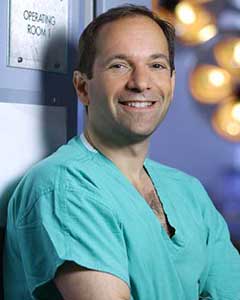
Andrew Lane, M.D.
Research areas: nasal polyps, olfaction, cell culture, transgenic mice, chronic rhinosinusitis, innate immunity, molecular biology
The Lane Laboratory is focused on understanding molecular mechanisms underlying chronic rhinosinusitis and particularly the pathogenesis of nasal polyps. Diverse techniques in molecular biology, immunology, physiology, and bioinformatics are used to study the role of sinus epithelial cell innate immunity in health and disease, as well as the impact of chronic rhinosinusitis on the function of the olfactory system.
Ongoing work explores how epithelial cells interact with the environment and participate in the immune response in coordination with other cell types to contribute to chronic sinonasal inflammation. The lab creates and employs transgenic mouse models of chronic sinusitis to support research in this area.
Another major focus of the lab is studying in human tissue and mouse models how chronic inflammation affects the sense of smell and taste. Collaborative investigations inside and outside Johns Hopkins explore mechanisms of anti-viral immunity to influenza and rhinovirus, and the bacterial microbiome of the nose and sinuses in health and disease.
NIH funding: AI132590, DC106106
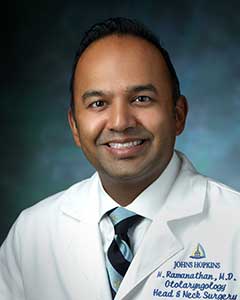
Murugappan (Murray) Ramanathan, Jr., M.D.
Research areas: Air pollution, chronic rhinosinusitis, nasal polyps, sinonasal epithelial barrier function, Nrf2, epithelial damage, particulate matter
Chronic rhinosinusitis (CRS) is a leading cause of morbidity globally, is the single most common self-reported chronic health condition and accounts for billions of dollars in health care costs and lost work days annually. Exposure to air pollutants is thought to be a critical modifier of CRS susceptibility.
Despite marked reductions in air pollution levels in the United States, the fine particulate component of air pollution (PM2.5) and ultrafine pollutants secondary to traffic continue to remain a recalcitrant issue globally and in the United States. The Ramanathan Lab focuses on studying the role of air pollution (PM2.5) in CRS.
In collaboration with scientists at the Bloomberg School of Public Health, we have used a state-of-the-art air pollution exposure system to develop a novel mouse model of air pollution-induced rhinosinusitis that mimics many of the features of CRS in humans. Our lab uses transgenic mouse models and novel immunologic/genomic techniques to study the mechanisms by which PM2.5 causes eosinophilic inflammation and sinonasal epithelial barrier dysfunction.
We are also interested in the role of the antioxidant transcription factor, Nrf2, which has shown to stabilize the epithelial barrier and reduce eosinophilia in PM-induced rhinosinusitis as a potential therapeutic target.
NIH funding: AI143731
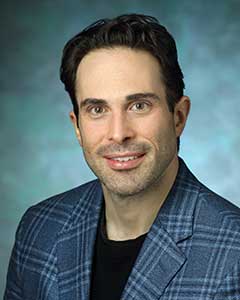
Stephane Lajoie, M.Sc., Ph.D.
Research areas: asthma, allergy, type 2 immunity, innate immunity, particulate matter
Stephane Lajoie is interested in how innate immune responses regulate lung health. Innate immunity involves ancient and well-conserved mediators, and its actions have far-reaching effects. In the lungs, innate immune responses play a critical role in response to environmental exposures such as allergen and ambient particulate matter. His lab focuses on how these exposures can promote aberrant mucosal responses and can drive the development of diseases such as asthma.
NIH funding: AI127644
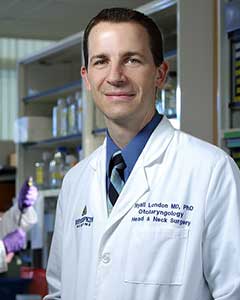
Nyall R. London Jr., M.D., Ph.D.
Research areas: chronic rhinosinusitis, inverted papilloma, olfactory neuroblastoma, esthesioneuroblastoma, clival chordoma, sinonasal undifferentiated carcinoma, sinonasal squamous cell carcinoma.
Nyall London’s lab is interested in understanding mechanisms of inflammatory and oncologic diseases of the sinonasal cavity and skull base. Chronic rhinosinusitis is a complex inflammatory disorder and the lab studies the role of the sinonasal epithelial barrier dysfunction in this disease process in an effort to identify new therapeutic targets. Tumors of the sinonasal cavity such as sinonasal squamous cell carcinoma, olfactory neuroblastoma (esthesioneuroblastoma), clival chordoma, and sinonasal undifferentiated carcinoma are very rare. We are interested in studying mechanisms of tumor development for these rare malignancies.
NIH intramural investigator
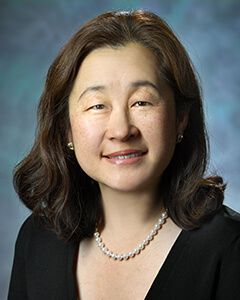
Jean Kim, M.D., Ph.D.
Research areas: nasal polyps, chronic rhinosinusitis, hyperplastic nasal polyposis
The Jean Kim Laboratory performs translational research in the area of chronic rhinosinusitis, with a niche interest in the pathogenesis of hyperplastic nasal polyposis. Encompassing clinical research to basic wet laboratory research, the lab studies the underlying immune and autoimmune mediated mechanism of polyp growth and perpetuation of disease. Human cell and tissue culture models are used. Techniques in the laboratory include cell and tissue culture, real time PCR, immunoblot, ELISA, flow cytometry, immunohistochemistry, electron microscopy, gene array analysis and other molecular approaches including genetic knockdowns. Approaches used in Kim’s clinical study designs include prospective and retrospective analysis of patient outcomes and clinical biomarkers, as well as controlled clinical trials.

Nicholas Rowan, M.D.
Research areas: quality of life outcomes, smell and taste outcomes, clinical trials
Nicholas Rowan is actively involved in both outcomes and translational research relating to chronic rhinosinusitis and endoscopic skull base surgery. He has a keen interest patient-reported quality of life outcomes as well as those that pertain to smell and taste. Dr. Rowan is also involved in sinus related clinical trials, pursuing new medical therapies and technological advancements for the treatment of patients with chronic rhinosinusitis.
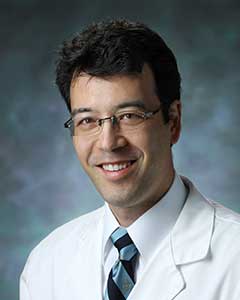
Masaru Ishii, M.D., Ph.D.
NIH funding: DE025265
Climate Change, the Environment and Rhinologic Disease
Johns Hopkins rhinologist, Jean Kim recaps recently published research and reviews undertaken by a work group that found a relationship between climate change, its effects on the environment and particular rhinologic diseases.

